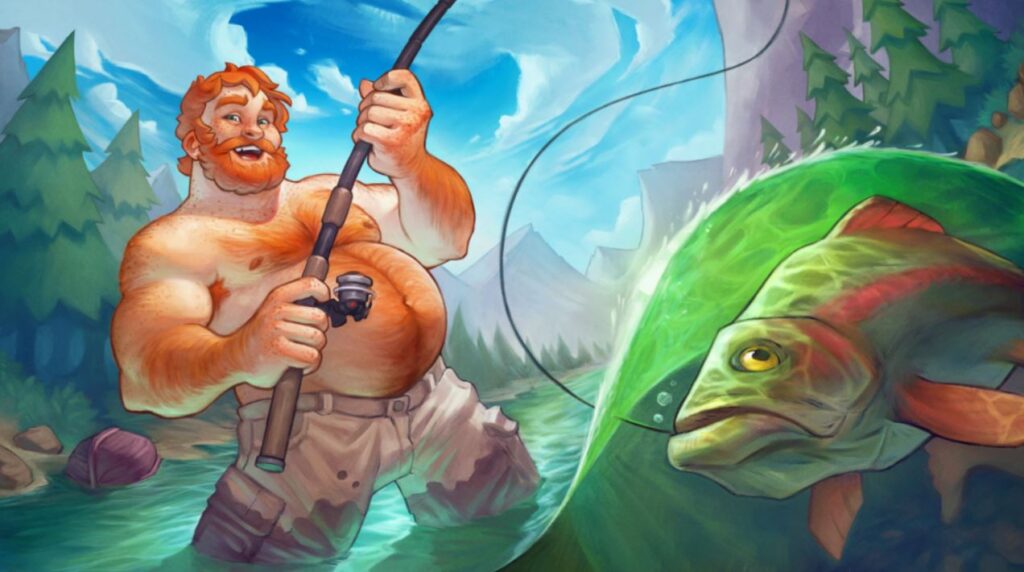
Where Are All The Fat Queer Video Game Characters?
One of the strangest things I’ve found working in this industry is that games are incredibly wary of including fat characters in general, never mind fat, queer video game characters. If they are included, they are either depicted as though Roald Dahl wrote them – pure and good who rarely put themselves first – or they are a walking fat joke whose depiction can be summed up by a desperate longing for food.
Fat video game characters exist, and as with most depictions in media, it’s never a ‘one size fits all situation.’ That’s the problem. There seems to be only two sort of fat characters, and only a few that stick out from the mould. For example, you have Ellie from the Borderlands series, and Fat Princess from her own video game. Both of these ladies are badass, full stop. But there’s never any room for their characters to be fleshed out beyond that. This applies to fat men in video games too, but with a touch of ‘comedy relief’ – just to shake things up. Just look at Zeke from InFamous, Wedge from Final Fantasy 7 Remake, and Coach from Left 4 Dead. All fat and all falling into stereotype after stereotype.
But this isn’t just about fat video game characters. I’m wondering where the hell are the fat queer video game characters at? Because, even outside of the triple-A scene, video game characters which allow you to be queer only seem to give you the option to be thin, or have thin love interests. Ultimately it’s up to developers what characters they want to put in their game, but it feels odd that in dating simulators or games where romance is possible, you’re able to date literal swords or a floating head, but fat people are nowhere to be seen.
Let’s take Hades, one of my favourite games of 2020 and the literal depiction of horniness, as an example. In an interview with Kotaku’s Ash Parrish, the question on why the gods and goddesses of Hades are so hot was asked. The reason was simple. It was “part of [Supergiant’s] commitment to honoring the source material, expressed visually through Jen’s [Jen Zee] instincts as an artist.” That’s all well and good, but one, to say that it was honoring source material isn’t all that accurate, and two, expresses that only the body types shown in Hades can be considered ‘godlike’ when it comes to attractiveness. Do I feel like this was intentional on Hades or even Jen Zee’s part? No, I don’t. But for a game where everyone looks like a supermodel, and how depiction of sexual attraction in the LGBT+ community only seems to center on thin, white, able-bodied gay men and women? It’s hard to ignore.
The LGBT+ community in video games has grown over time – just look at the inclusion of Dina in The Last of Us Part 2, and the various characters in The Waylanders – but the fact is that attractiveness is only considered that when the characters are thin. It’s a problem that’s rife in real-life queer spaces, so it’s certainly isolating to see progressive game studios stating that they are doing well in regards to representation when every queer character shown may not look like you at all. This is troubling, as at least gay men have an appreciation – and slang – for chubby gay men. Bears and cubs are cute. Fat, queer women, as far as I’m aware, do not have that same adorable slang – and that already says a lot. Which is why video game developers must sit back and ask themselves: why does physical attraction only seem valuable if it’s white, thin, and able-bodied?
Of course, there are games out there that are doing it right. Dream Daddy’s Brian is apologetically queer and fat, and it’s never rubbed in his face as a negative thing. He is just Brian, the guy who loves his daughter and likes to fish. Same with Gloria from As We Know It, she’s a sweet, adventurous Community Affairs Supervisor who just wants to learn new things and make people feel welcome. Both of them are written in a way that doesn’t make their size a cruel joke, and instead actually looks portrays them as attractive, and treats them like people instead of a punchline. It’s so simple, so easy to do, and yet so many games fail to do so because stereotypes are what, easier to fall into?
It’s 2020 and people are still arguing over whether Mei from Overwatch is fat or not, whether fat people have the right to exist and be represented in video games in the first place. That is not only ridiculous, but it further shows that we still have a lot of work to do when including fat characters in video games, particularly when it comes to queer games. Our real-life communities already have these problems of fatphobia to the point that some find it easier to be ‘queer’ than they do in being fat. That’s a failure of mainstream media, and video games are a part of that. So all I ask from video game developers is to try and make sure that the art we create doesn’t do anything to encourage it.






Comments are closed.